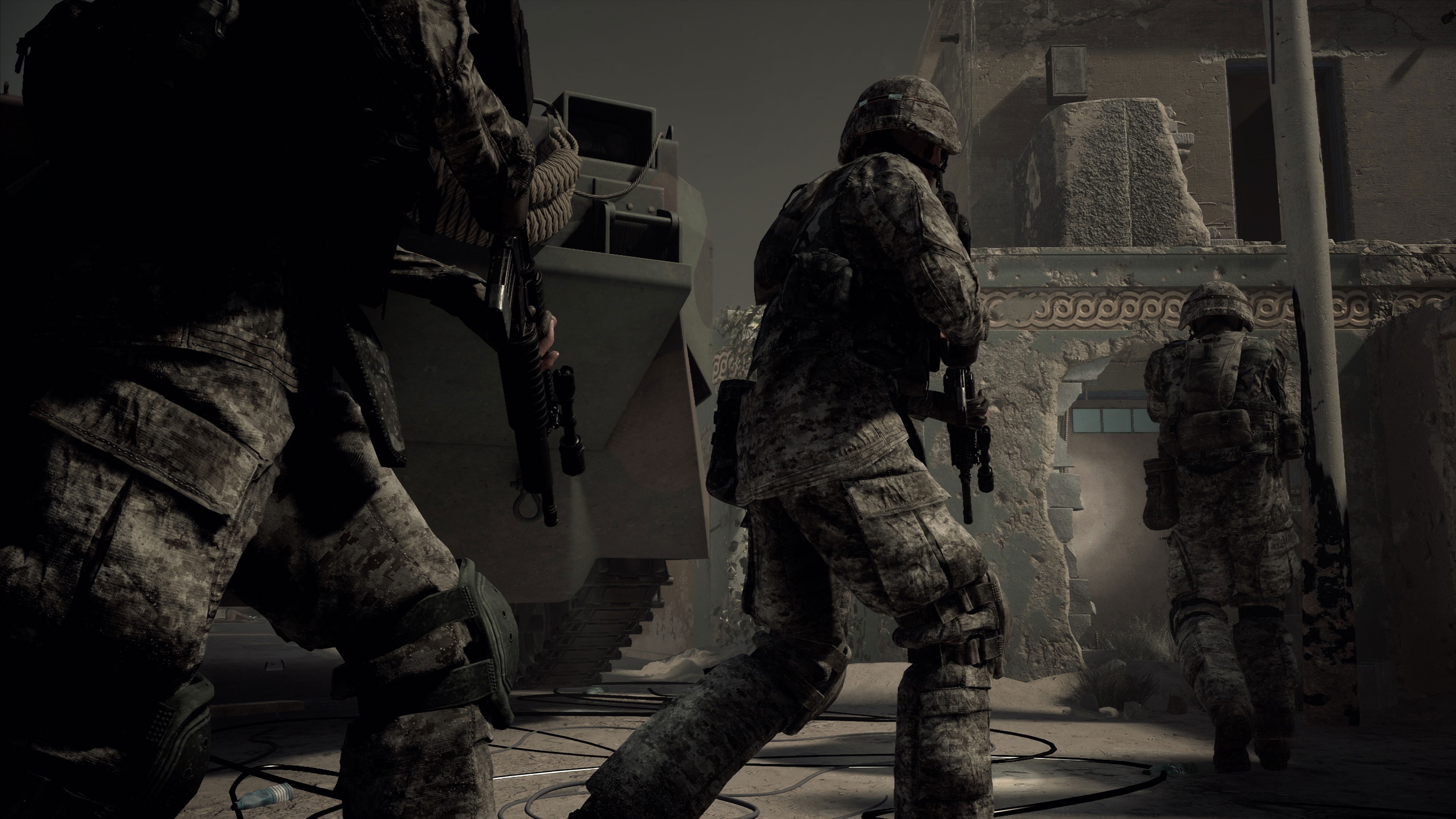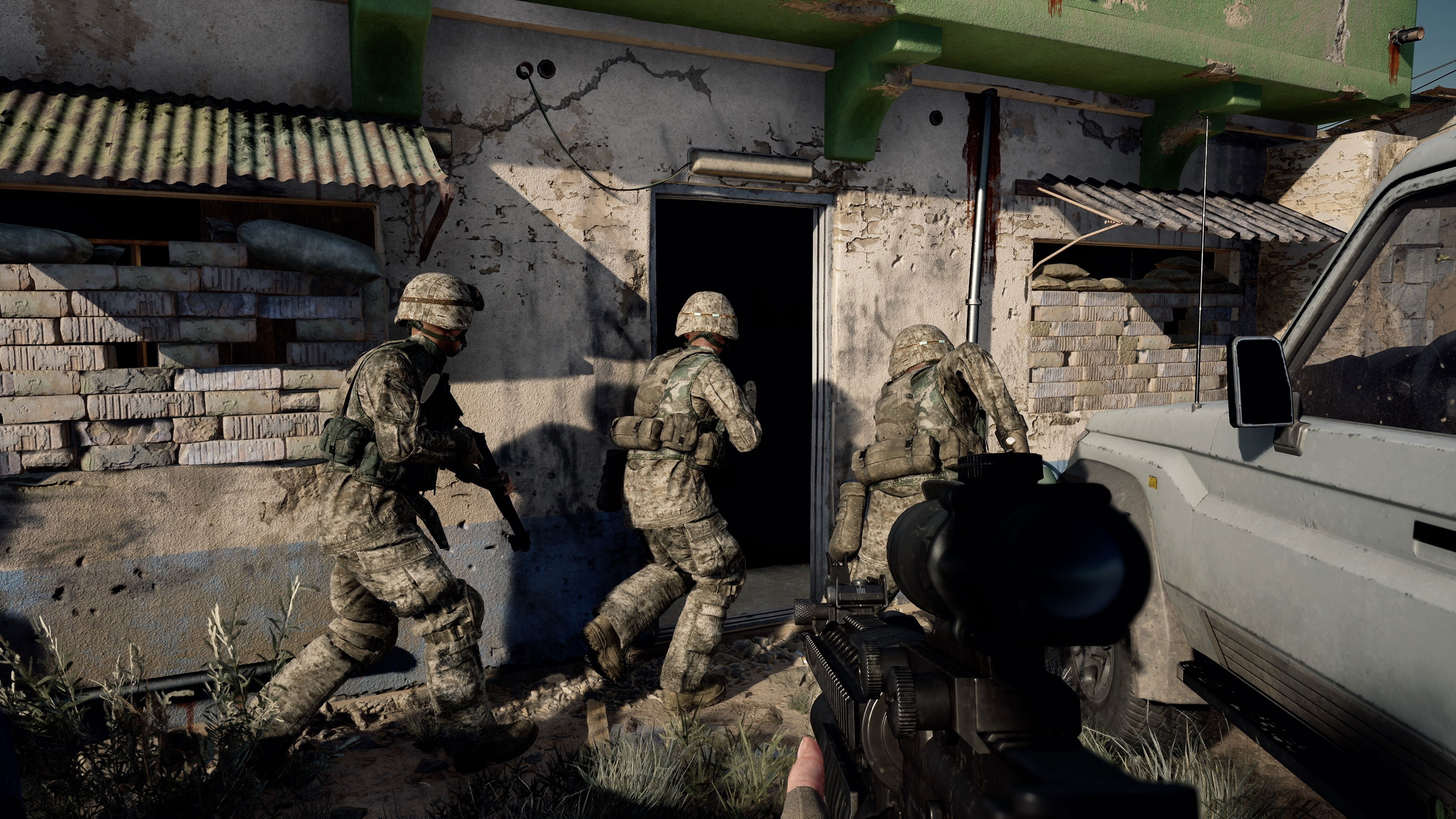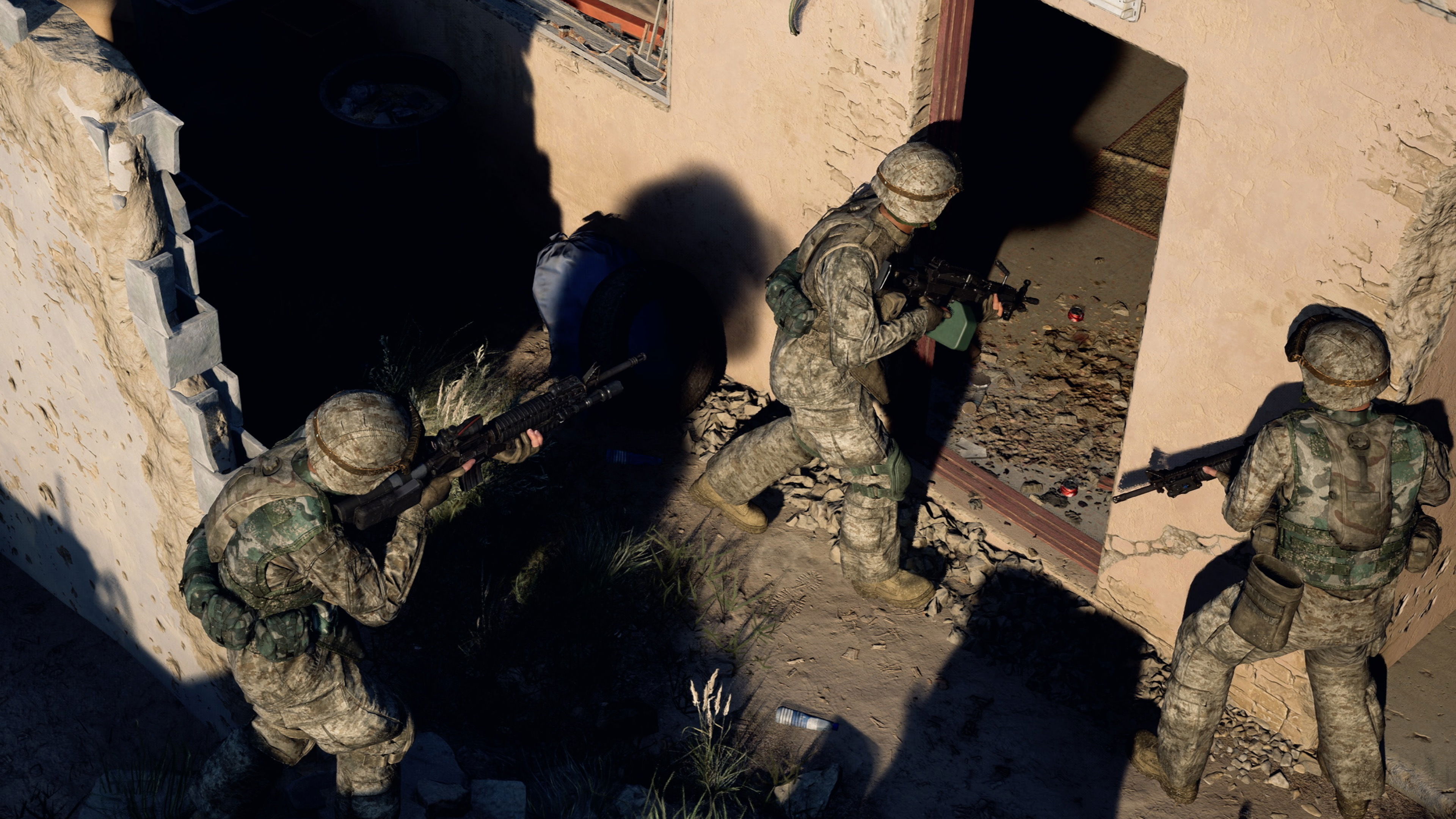Bottom Line Up Front (BLUF):
Six Days in Fallujah offers a gripping and immersive experience that blends tactical realism, emotional storytelling, and the complexities of modern warfare. Set against the backdrop of the controversial Second Battle of Fallujah in 2004, the game challenges players to navigate a devastating urban battlefield, making every decision and action matter.

First Impressions:
Six Days in Fallujah (Early Access) is not your typical military shooter. Right from the start, it becomes clear that this game is about more than just firefights—it's about strategy, decision-making, and communication. Developed with input from real-life Marines who fought in the Second Battle of Fallujah, the game offers players a raw, visceral look at the challenges soldiers faced in one of the most intense urban battles of the Iraq War.
The game’s environments are meticulously designed, faithfully recreating the war-torn streets of Fallujah. Most importantly, the map layout is different every time due to procedural generation technology. From destroyed buildings to narrow alleyways, the world feels lived-in, chaotic, and dangerous. But it's not just about the setting—the game’s tactical gameplay demands players think on their feet. Every move must be calculated, every corner checked, and every decision made with the knowledge that even the smallest mistake can have serious consequences.
One of the standout features of Six Days in Fallujah is its commitment to storytelling. The recent Command and Control update introduces a documentary-style format, featuring real Marine interviews before missions, providing context and emotional weight to each campaign. This personal connection to the soldiers’ stories adds a layer of depth that few shooters achieve. It’s an emotional and thought-provoking approach that makes each mission feel significant, not just in terms of gameplay, but as part of a larger narrative about the cost of war.
Gameplay and Experience:
I’ve had the chance to play both solo and in co-op mode with a group of four, and both experiences offers something unique. When playing solo, you command a squad of AI teammates, each of whom responds to your orders with surprising intelligence. Unlike many other shooters, the AI here feels dynamic and reactive to the environment—if you tell them to hold a position, they won’t just stand still; they’ll adapt based on the layout and changing circumstances around them. This makes them far more useful and less frustrating than the often clumsy AI you see in other games.
However, the true magic happens in co-op mode. As someone who prefers cooperative gameplay, I found the experience of coordinating with friends to be much more rewarding. The challenge ramps up significantly when you’re relying on teamwork to overcome the ruthless AI. Missions become far more dynamic and tense when you're navigating an unforgiving landscape with three other players. Communication and coordination are key— nothing is more rewarding than pulling oA a perfectly executed maneuver, and nothing is more punishing than the smallest misstep leading to failure. We found ourselves replaying missions multiple times after mistakes like getting caught in the wrong building or failing to clear a room properly. Every choice matters, and each failed attempt teaches you something new about strategy and teamwork.

Enemy AI:
Let’s talk about the enemy AI—holy smokes—it’s intense. The enemy adapts quickly, learning from your movements and using the environment to their advantage. Whether it’s sniping from rooftops, using murder holes for cover, or ambushing you in tight spaces, the enemy AI is relentless. Unlike other shooters where enemies might stand idly by waiting to be shot, here the AI actively engages, flanks, and makes you feel like you're always on the edge. The AI doesn’t let up, and that relentless pressure makes every encounter feel urgent and tense.
Final Thoughts:
Six Days in Fallujah is a standout entry in the modern military shooter genre. The game’s combination of tactical depth, environmental storytelling, and emotional impact makes it more than just a game—it’s an experience. The detailed recreations of real-world locations, the intensity of the combat, and the thoughtful integration of human stories from the battlefield all combine to create something truly unique. Whether you’re playing solo, commanding AI troops, or working with friends in co-op mode, the game consistently challenges players to think critically and reflect on the human side of war. If you’re looking for a shooter that goes beyond the typical action and delivers a powerful, immersive experience, Six Days in Fallujah is definitely one to watch




